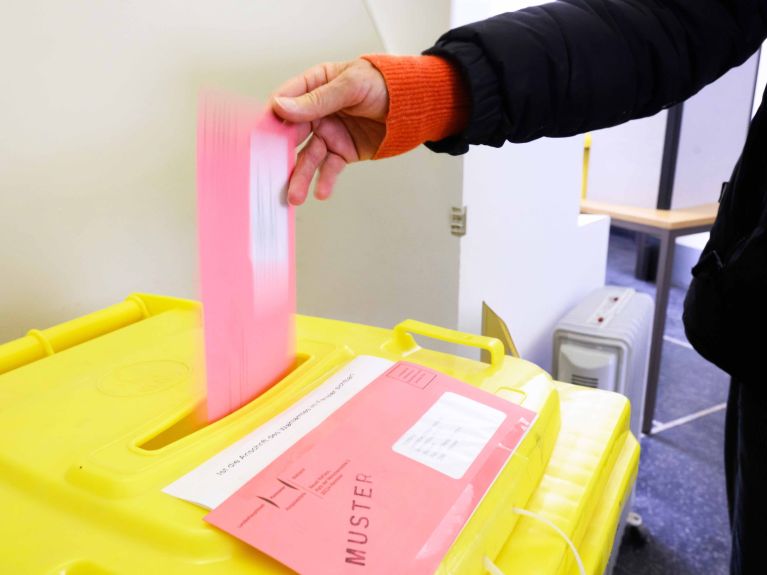The five principles which govern elections in Germany
Germany’s constitution requires that elections must be general, direct, free, equal and secret.

The Basic Law is the constitution of the Federal Republic of Germany. In Article 38, it sets out the fundamental principles for all elections in Germany, from national and state parliaments right down to municipal level. The Basic Law states that all state authority is derived from the people and is exercised by the people through elections. Elections must be general, direct, free, equal and secret.
Let’s take a look at what these principles mean.
“General” refers to who is allowed to vote
Regardless of gender, income and job, every citizen is allowed to vote. The voting age in Germany is 18 (16 for EU elections).
“Direct” means that representatives are elected directly
Unlike in the USA, for example, where voters elect the members of the Electoral College to vote on behalf of the people, voters in Germany vote directly for their representatives.
“Free” means there is no compulsion of any kind
All voters are free to vote without pressure or attempts to influence who they vote for – or even whether they vote at all. There is no compulsory voting in Germany, which ensures that each person is able to express their wishes in an unbiased way.
“Equal” expresses the fact that each vote is worth exactly the same amount
Every person eligible to vote has two votes - a first and a second vote. The first vote is used to directly elect a candidate in the voter’s electoral district to parliament. The second vote is used to elect a party to the Bundestag. The two votes count equally - with no weighting or privileges: no one vote counts more or less than any other. That said, only parties which achieve over 5% of all votes or at least three direct mandates from electoral districts will actually gain seats in parliament. This prevents parliament from becoming fragmented. Furthermore, the direct mandates achieved are offset against the number of second votes so that no party ends up with more MPs than they are entitled to according to their share of second votes.
“Secret” means that nobody knows who anybody else has voted for
Voters mark their ballot papers out of sight in a booth screened from others’ view. The ballot papers are folded before being placed in the ballot box. This prevents anyone from identifying who someone chose to vote for. Thanks to this, elections are secret.
Is there a way to appeal the result of an election?
Voters can contest the outcome of an election if they believe there were infringements against the fundamental principles of election law. Parliament decides on the validity of the challenge following an investigation by an election oversight committee. It is also possible to appeal that decision to the Federal Constitutional Court.


